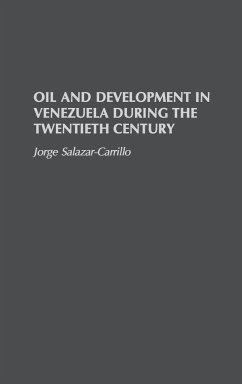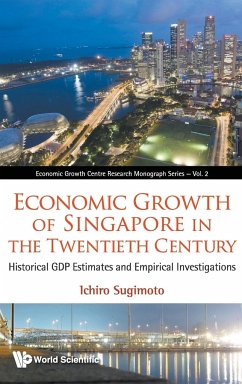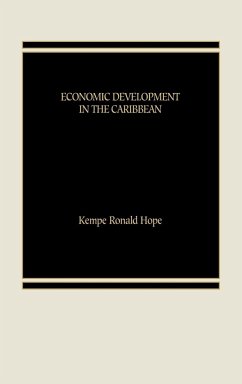
Oil and Development in Venezuela during the 20th Century

PAYBACK Punkte
51 °P sammeln!
This book advances the theory that a potential leading export sector-in this case, the oil sector-is capable of inducing economic growth even in peripheral countries where the product line is primary in nature. In Venezuela the oil sector has contributed directly and indirectly to the development of the country's overall economy, particularly from 1936 to 1973, when that sector met the criteria of a leading sector, i.e., one that expands rapidly and obtains a large specific size relative to the economy as a whole. Oil investment in Venezuela contributed to the fiscal sector, the foreign sector...
This book advances the theory that a potential leading export sector-in this case, the oil sector-is capable of inducing economic growth even in peripheral countries where the product line is primary in nature. In Venezuela the oil sector has contributed directly and indirectly to the development of the country's overall economy, particularly from 1936 to 1973, when that sector met the criteria of a leading sector, i.e., one that expands rapidly and obtains a large specific size relative to the economy as a whole. Oil investment in Venezuela contributed to the fiscal sector, the foreign sector, GDP, income, backward and forward linkages, the multiplier and accelerator effects, and the retained value of total expenditures. In spite of recent efforts to diversify the production and export mix, the Venezuelan economy continues to remain heavily dependent on oil production for export. During the midcentury decades of solid growth, it became evident that government oversight was needed to ensure that the numerous contributions flowing from the oil sector would be put to good use. Overall, it appears that the contributions were well utilized by the Venezuelan government, although there was plenty of room for improvement. Income distribution problems and other social inequities continued to beset the development process, leaving the economy rigid and inflexible. Consequently, when the oil sector faltered (1974 to 2000), Venezuela was unable to shift into other product lines. Political disarray soon followed, and with it a pervasive aura of economic uncertainty that persists to this day.













